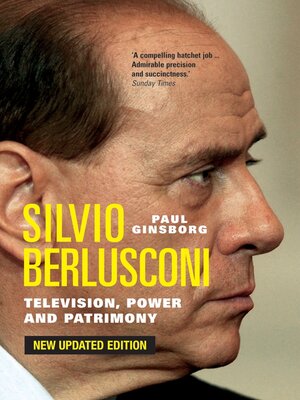
Sign up to save your library
With an OverDrive account, you can save your favorite libraries for at-a-glance information about availability. Find out more about OverDrive accounts.
Find this title in Libby, the library reading app by OverDrive.



Search for a digital library with this title
Title found at these libraries:
| Library Name | Distance |
|---|---|
| Loading... |
Silvio Berlusconi, a self-made man with a taste for luxurious living, owner of a huge television empire and the politician who likened a German MEP to a Nazi concentration camp guard-small wonder that much of democratic Europe and America has responded with considerable dismay and disdain to his governance of Italy.
Paul Ginsborg, contemporary Italy's foremost historian, explains here why we should take Berlusconi seriously. His new book combines historical narrative-Berlusconi's childhood in the dynamic and paternalist Milanese bourgeoisie, his strict religious schooling, a working life which has encompassed crooning, large construction projects and the creation of a commercial television empire-with careful analysis of Berlusconi's political development.
While highlighting the particular italianita of Berlusconi's trajectory, Ginsborg also finds international tendencies, such as the distorted relationship between the media system and politics. Throughout, Ginsborg suggests that Berlusconi has gotten as far as he has thanks to the wide-open space left by the strategic weaknesses of modern left-wing politics.
Paul Ginsborg, contemporary Italy's foremost historian, explains here why we should take Berlusconi seriously. His new book combines historical narrative-Berlusconi's childhood in the dynamic and paternalist Milanese bourgeoisie, his strict religious schooling, a working life which has encompassed crooning, large construction projects and the creation of a commercial television empire-with careful analysis of Berlusconi's political development.
While highlighting the particular italianita of Berlusconi's trajectory, Ginsborg also finds international tendencies, such as the distorted relationship between the media system and politics. Throughout, Ginsborg suggests that Berlusconi has gotten as far as he has thanks to the wide-open space left by the strategic weaknesses of modern left-wing politics.







